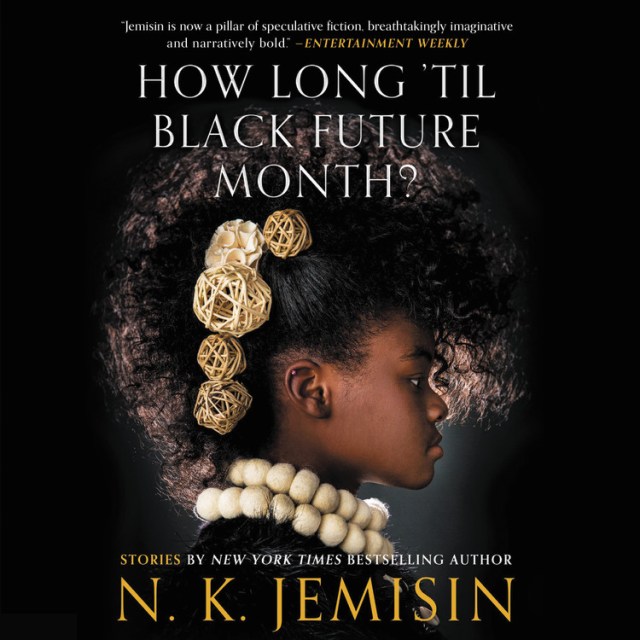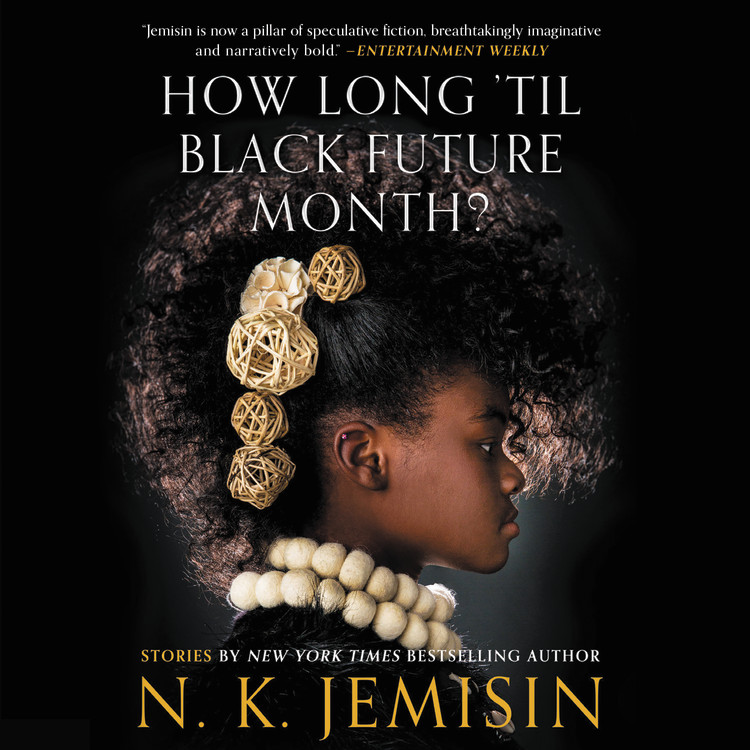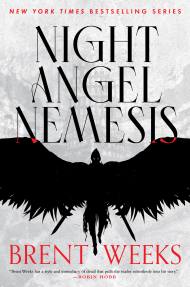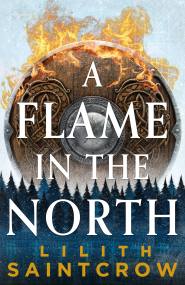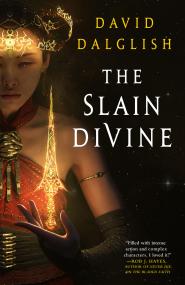Promotion
Use code MOM24 for 20% off site wide + free shipping over $45
How Long 'til Black Future Month?
Stories
Contributors
Read by Shayna Small
Read by Gail Nelson-Holgate
Read by Robin Eller
Read by Ron Butler
Read by Kevin Stillwell
Read by Je Nie Fleming
Read by Jeanette Illidge
Formats and Prices
Format
Format:
- Audiobook Download (Unabridged)
- ebook $11.99 $15.99 CAD
- Hardcover $26.00 $34.00 CAD
- Trade Paperback $18.99 $23.99 CAD
This item is a preorder. Your payment method will be charged immediately, and the product is expected to ship on or around November 27, 2018. This date is subject to change due to shipping delays beyond our control.
Also available from:
“Marvelous and wide-ranging.” — Los Angeles Times“Gorgeous” — NPR Books“Breathtakingly imaginative and narratively bold.” — Entertainment Weekly
Spirits haunt the flooded streets of New Orleans in the aftermath of Hurricane Katrina. In a parallel universe, a utopian society watches our world, trying to learn from our mistakes. A black mother in the Jim Crow South must save her daughter from a fey offering impossible promises. And in the Hugo award-nominated short story “The City Born Great,” a young street kid fights to give birth to an old metropolis’s soul.
Genre:
-
"The most celebrated science fiction and fantasy writer of her generation... Jemisin seems able to do just about everything."New York Times
-
"Jemisin's phenomenal success has been something like an earthquake ripping through the traditional order of fantasy itself."New York/Vulture
-
"The most critically acclaimed author in contemporary science fiction and fantasy."GQ
-
"Jemisin's stories are discerning, thought-provoking, and beautifully crafted, showcasing a master at work."Pen America
-
"Marvelous and wide-ranging."Los Angeles Times
-
"One line from [Jemisin's introduction] has tattooed itself on my mind, a sort of manifesto for her ongoing work and all the fiction I love: 'Now I am bolder, and angrier, and more joyful.' I felt, after reading these stories, that I was too."NPR Books
-
"N. K. Jemisin is a powerhouse of speculative fiction. So, obviously, you need to read this new short story collection."Bustle
-
"Read her books-they're probably better than whatever else you were going to read next."Literary Hub
-
"Jemisin is now a pillar of speculative fiction, breathtakingly imaginative and narratively bold."Entertainment Weekly
-
"Nora Jemisin is a writer of uncanny gifts who is to a moral certainty one of the five best we have right now."Sci-Fi
-
"Powerful and mind-expanding...Jemisin pushes boundaries, experiments with format and theme, and challenges expectations."Publishers Weekly (starred review)
-
"[E]loquently develops a series of passionately felt themes... one of speculative fiction's most thoughtful and exciting writers."Kirkus (starred review)
-
"Each of the [stories] is masterfully written and beautifully imagined, making the book difficult to put down...Anyone who appreciates Jemisin's work, speculative fiction, or simply the art of the short story shouldn't miss this collection."BookPage
-
"Whether she's exploring alien life forms or political machinations, self-sacrifice or monsters in New Orleans, Jemisin's characters are boldly drawn, complex, and so engaging. This is a great gift for any long-time fan and a solid introduction to her work for the curious, and I highly recommend you grab yourself the gorgeous hardcover version."Book Riot/Swords & Spaceships
-
"Jemisin... is a writer of uncanny gifts who is to a moral certainty one of the five best we have right now. ... How inadequate these brief synopses are to convey the sheet beauty to be found in these stories."Sci-Fi
-
"There are so many things in How Long 'Til Black Future Month-from firebirds to Megacops, from truffles to hurricanes, from utopias (maybe) to civil rights marches-that it's impossible to describe. Except to say that every single story here is riveting, provocative, and remarkable. An extraordinary story collection from an extraordinary writer!"Connie Willis, Hugo and Nebula Award winner
-
"Energizing in the way the best science fiction aims to be, forcing readers to look back on the 'real' world with new and eager eyes."Shelf Awareness (starred review)
-
"Established fans of Jemisin's work and general fantasy and sf readers alike should check out this collection of diverse and exciting new speculative fiction."Booklist
-
"These stories are wonderful. In worlds both invariably cruel and brilliantly imagined, heroism thrives in the margins."Nicky Drayden, author of The Prey of Gods
-
Jemisin's body of work already spans an extraordinary and "astonishing terrain. Science fiction and fantasy have always been the genres of my heart, and Jemisin is an absolute master. Like Ursula K. Le Guin, she is a visionary who shows us our world by remaking it in stories."Kelly Link
-
"A brilliant example of how we in the present are making the future with our actions and how the future may exist in our past... What is also evident in this short story collection is that Ms. Jemisin can write anything. Her prose, sometimes pulsing, encourages you to read at different tempos as if she is conducting an orchestra. Slow moving tension and suspense make you fearful, but then entices you into reading the next sentence. Lush descriptive passages conjure cinematic vistas."Pittsburgh Post-Gazette
-
"The true breadth of [Jemisin's] talent ... comes through to grand effect in her first collection of short fiction... Jemisin is an essential voice in modern-day SFF."B&N Sci-Fi & Fantasy Blog
- On Sale
- Nov 27, 2018
- Publisher
- Hachette Audio
- ISBN-13
- 9781549147289
Newsletter Signup
By clicking ‘Sign Up,’ I acknowledge that I have read and agree to Hachette Book Group’s Privacy Policy and Terms of Use
